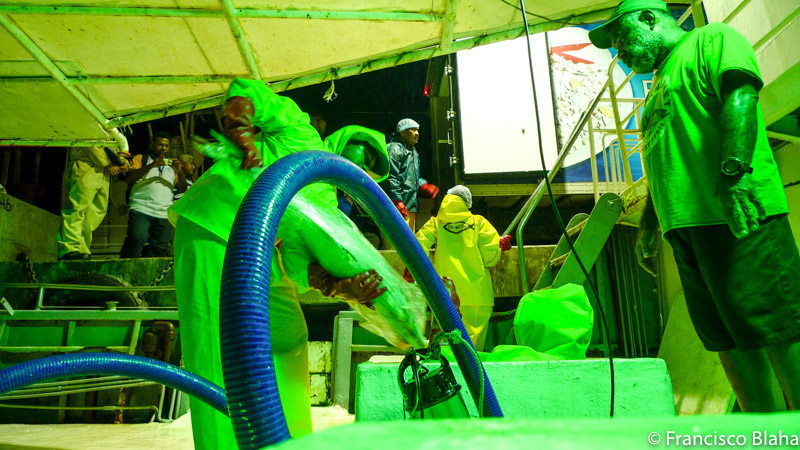Plenty of info in the news lately on the combined efforts of 3 friends from different times in my life that got together in one project and created a blockchain based traceability structure for tuna caught, process and exported by one company in Fiji.
This is good news since is sui generis system developed by good people that have their skin in the game. The boat/company owner is Brett ‘Blu” Haywood from SeaQuest, whom I have know for over 10 years now. Then is the fish techy, Ken Katafono from TraseAble, who until very recently was the IT boss at FFA, he is a really nice guy and is in this game for the long term, and the is Bubba Cook also a friend that is behind a lot of good work in the tuna world from his job at WWF.
Here is a good explanation of the operational side of the system
The pilot they got involved got things right by testing it in well-managed scenario. Fiji has a efficiently controlled fishery with good regulatory oversight, run by mostly domestic operators (I say mostly because there are substantial Chinese interests behind some key operators), mostly local crew, dockside processors, short value chains and responsible importers in defined markets and all keen to do the right thing. Fiji is here at the same time Flag, Coastal, Port and Processing State, hence would be difficult to find a better scenario to test the system.
For me the key aspect of key interest is that it is based on Blockchain, a technology that is rapidly advancing into many areas of our world. Basically, a blockchain is a digital ledger that is distributed, decentralised, verifiable and irreversible. It can be used to record transactions of almost anything and where “ownership/responsibility” needs to be accounted for.
It is a shared database that everyone along the value chain can see and update, hence giving it a lot of transparency, all players along the value chain can see and verify the ledger, but no one can alter or delete the history of transactions with out everyone else noticing.
Ideally, an interested consumer could scan a code on a fish (hopefully before buying it) and know its “self -verified” history back to the vessel… (I say "self verified", since if all the players are inserting ‘suitable arranged data’ the system will still work), but in principle if it includes official guarantees it could provide bona fide guarantees of its legality…
Some people has been calling it a solution for fisheries “sustainability” and human right abuses…
I don't like that because it puts too much pressure on one example of very good use of technology.... those issues are multifaceted and involve a lot of jurisdictions, pining the solutions on one system is really unfair to that system and risk hyper-inflating the expectations on the tool and then people walking away because it does not deliver on the hype that was built around it.
Furthermore, for me “Sustainability is a process” not a line drawn somewhere. Everything has advantages and disadvantages, and we have to navigate ethical choices since there is no one perfect way to achieve a complex goal. What is ethical and sustainable depends deeply from where one is standing in any system.
In any case I love to see that is working, as it is a solution for short value chains with a few players on a "decentralised" system (meaning each player is voluntary a "central" of sorts), hence the system works.
Now on a non voluntary system, where there are no incentives for the "player to do its bit", and we have processing over multiple jurisdictions, the system may need to be centralised or gatekeept either at one or connecting levels... and involve official verifications, otherwise "mass balance" would be complicated.
And there lies the challenge for anyone playing this game, as my friend Gilles said, “With CDS, we have the means to effectively tackle IUU, but whether the collective will to do so exists is a different matter.”
In our recent FAO book "Seafood traceability for fisheries compliance" we tackled the issue of Blockchain for eCDS, and I quote:
“The so-called “blockchain” technology is set to revolutionize the way in which data that were centrally recorded and managed are recorded at the decentralized level in future. Our statement does not challenge this. Blockchain technology may eventually eliminate the need for central registries, and is therefore likely to reduce the complexity and cost of transnational traceability systems. Current compliance functions enforced through a CDS central registry will remain in place to identify fraudulent transactions in blockchain systems and environments. The difference between a central registry and a blockchain approach to CDS data is a matter of form, not function.”
I’m truly exited to see where this is going, and have already involved Ken in the idea of an e-Port initiative (paperless, interconnected and uploading directly into regional databases and a eCDS) I’m working on... so watch their space.
